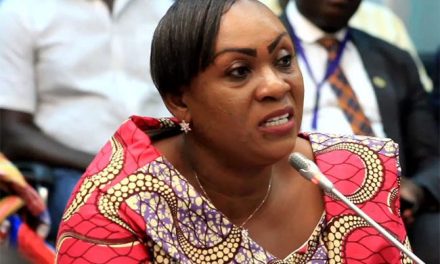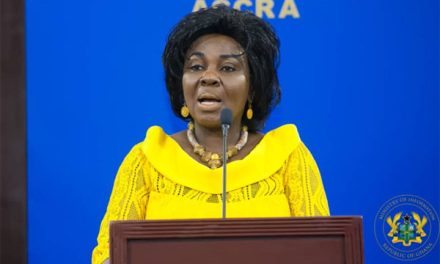
GEF2023: Terkper Advocates Reforms To Curb Recurring Arrears4 min read

A former finance minister, Seth Terkper, wants an end to the issue of recurring arrears such as in the energy sector, as well as payments to contractors within the fiscal space.
During a thought-provoking panel discussion at the 2023 Ghana Economic Forum (GEF), Mr. Tekper – who joined the conversation virtually, said it is high time a permanent solution is found to this challenge, which he said remains a significant concern.
“We should stop the habit of footnotes; we should stop the habit of not providing adequately for arrears,” he said, passionately calling for comprehensive reforms and emphasising the need to abandon the practice of using footnotes and underfunding arrears.
Addressing the forum’s overarching theme, ‘Build Back Better: IMF Support, Strategies for Building a Sustainable Economy and a Dynamic Business Environment’, Mr. Terkper underscored the presence of highly qualified Chartered Accountants at the Controller and Accountant-General’s Department. He argued that these professionals possess the expertise to guide Ghana toward semi-accrual accounting.
“We have over 100 qualified Chartered Accountants at the Controller and Accountant-General’s Department. These professionals have the capacity to lead the country toward semi-accrual accounting,” he added.
Furthermore, Mr. Terkper stressed the significance of adhering to the IMF programme’s mandate for improved accounts payable practices, moving the nation closer to fully accrual accounting. He also emphasised the importance of enhancing accounts payable practices as part of a broader fiscal reform agenda, highlighting the need for consistency in this approach.
One notable fiscal adjustment pertains to the Primary Balance on a commitment basis, aligned with the IMF-supported PC-PEG framework. Government indicated in the 2023 budget statement that fiscal accounts will be reported on a commitment basis, considering the outstanding unpaid commitments of government. This shift, as per government, fosters transparency, real-time monitoring of fiscal performance and a clear view of payables; thus curbing the accumulation of arrears.
IMF report echoes Terkper’s concerns
The May 2023 IMF staff report echoed the former finance minister’s apprehensions, emphasising that Ghana’s fiscal policy has been marred by recurrent episodes of overspending. This overspending has resulted in the persistent accumulation of arrears, raising concerns about unrealistic budget formulation, weak expenditure controls and inadequate cash management.
Furthermore, the IMF report highlighted that previous budgets were overly-optimistic in their forecasts, even with the existence of a fiscal council. The fiscal rules established in 2019 were criticised for their lack of a clear debt target and reliance on a complex, double operational rules system – including ambiguously defined escape clauses and ineffective enforcement mechanisms.
The report also shed light on longstanding challenges within public financial management. A substantial portion of revenue is earmarked for statutory funds, with internally generated funds (IGFs) accounting for 18 percent of primary expenditures. This has created significant budgetary rigidities, leading to inefficiencies in expenditure controls.
The IMF report emphasised that statutory funds – such as the GETFund, Road Fund and District Assemblies Common Fund – operate independently and contribute significantly to capital expenditures. However, spending by most statutory funds and IGF-reliant institutions remains disconnected from the budget planning system and expenditure accounting and control system (GIFMIS), resulting in severe deficiencies for expenditure controls.
The report further highlighted absence of a centralised system for assessing and prioritising public investment projects, contributing to inefficiencies in resource allocation.
Government bonds and tax policies
Mr. Terkper also drew attention to the pivotal role of government bonds in economic stability. He expressed concern over the ‘haircuts’ these bonds have experienced and their transition from Treasury bills to the stock exchange in 2015. Despite these challenges, the domestic debt exchange programme has transformed the fixed income market into the largest segment on the stock exchange.
He stressed the need for confidence in government bonds, given their crucial role in reflecting the nation’s overall financial health. He also highlighted a pending bill, initially drafted by former President Kufour’s regime, aimed at establishing a robust repayment mechanism for government bonds.
Additionally, Mr. Terkper highlighted the importance of stable tax policies – underscoring corporate income tax, personal income tax, VAT and import duties as essential pillars of taxation. He cautioned against policy changes that could disrupt the stability and maturity of these taxes – such as raising tax rates and introducing additional levies, since such measures could increase production costs and hinder the country’s export potential.



















